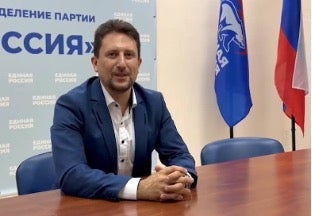
The security chief at the Zaporizhia NPP (ZNPP), Andriy Korotkyy, has been killed by a car bomb in the plant operators’ town of Energodar. “A homemade explosive device was planted under the vehicle of the head of the security,” Russia’s Investigative Committee said in a statement on Telegram. “When the man got into the car, it detonated. The victim died in the hospital from his injuries,” the committee said, adding that it was opening a murder investigation.
Ukraine’s Military Intelligence Directorate (GUR) took responsibility, posting a video of the car exploding on Telegram. After the incident, the governor of the Zaporozhye region, Yevgeny Balitsky, on his Telegram channel urged residents of the region “not to lose vigilance, always be on the lookout, inspect their cars, control the situation”.He added that Korotkyy was a former chairman of the Energodar City Council of Deputiesand after continued to perform the duties of a deputy.
ZNPP Director Yuriy Chernychuk was quoted on the ZNPP Telegram channel as saying: “This is a horrific, inhumane terrorist act.… An attack on employees who ensure the safety of a nuclear facility is a reckless, excessive step.” ZNPP management said that Korotkyy’s family will be provided with all the necessary assistance and promised to do everything possible “to ensure safe operation of the plant and comfortable living of people in Energodar”.
Currently, investigative and operational-search activities are underway. The purpose of these actions is to identify those involved in the commission of a crime. The objects seized at the scene were sent for forensic examination. Witnesses and eyewitnesses of the incident are also being questioned, RIA Novosti reported.
This was not the first case of an attempt on the life of a ZNPP employee. In early September, an attempt was made on the former mayor of Energodar Andrey Shevchik, who also works at ZNPP. As a result of the incident, he was seriously injured, according to Rosatom Director General Alexey Likhachev.
Korotkyy’s death was reported to International Atomic Energy Agency (IAEA) experts stationed at ZNPP. “In a letter to the IAEA, Russia affirmed he was ‘one of the key staff members responsible for ensuring nuclear security’ at the plant. Ukraine told the IAEA he was not a ZNPP staff member anymore,” IAEA noted.
IAEA said it was “also aware of a public statement issued the same day by Ukraine’s military intelligence indicating that this person’s alleged actions after Russia took control of the ZNPP in March 2022 were the reason he was targeted. In addition, the country’s military intelligence posted an image of a destroyed car, and suggested others may also face ‘retribution’.”
In follow-up communication with the IAEA, Ukraine said it “does not attack civilians”. IAEA said Ukraine did not confirm or deny any responsibility for the attack. In a letter to the IAEA, the Russian Federation said Mr Korotkyi was “head of the permits bureau” at the ZNPP and called the attack a “horrific crime” committed by Ukraine.
Director General Rafael Mariano Grossi reiterated that while the IAEA does not have forensic capabilities or authorities to investigate the incident, maintaining nuclear safety and security remains of paramount importance to prevent a nuclear accident during the conflict.
“With this vital objective, the IAEA in March 2022 established seven indispensable pillars for nuclear safety and security that have been supported by all IAEA member states. Pillar 3 states that “the operating staff must be able to fulfil their safety and security duties and have the capacity to make decisions free of undue pressure”, Grossi noted. “Any targeting of employees of nuclear power plants would constitute a blatant violation of this pillar fundamental for overall nuclear safety and security,” he said.
“In addition, any statements indicating further retaliatory measures – potentially affecting staff of the ZNPP – would be unacceptable and contrary to the safety pillars established by the IAEA,” he said. “Any such threats deny staff who are not responsible for the overarching political and military situation the minimum standards of working conditions to do their jobs properly.”
Grossi once again called for maximum restraint during the conflict and said any action targeting staff at the ZNPP – in order to address issues related to its status – has a direct impact on nuclear safety and security and must cease. “The only way to avert the threat of a nuclear accident with transboundary radiological consequences during this war is to fully respect and adhere to the seven indispensable pillars for nuclear safety and security as well as the five concrete principles for the protection of the Zaporizhia NPP,” he said.
Meanwhile, the Federal Service of National Guard Troops, Rosgvardiya, reported that it had shot down a Ukrainian drone near ZNPP. “As a result of the operational actions of Rosgvardiya employees, an unmanned aerial vehicle of an airplane type was shot down on the approach to the territory of the ZAES with the help of a complex effect of electronic warfare and small arms. When hitting the ground, the drone did not detonate,” the report said. Soldiers of the Rosgvardiya engineering and sapper division examined and neutralised the explosive charge of the drone, the department said. ZNPP was not damaged.






